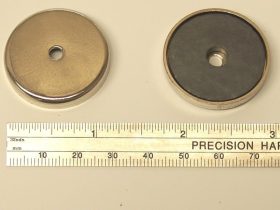I heard the term OKR first time when I attended a meeting where many people were muttering this word. I had no clue what they were discussing. I thought it must be some technical word related to a certain machine, but nothing to do with people.
But over time, I realised it is quite the opposite. OKRs, at their heart, are about direction, and not just numbers on a chart, but the sense that you finally know which way you are moving.
A Morning at Wave Nine
After a few weeks, I attended an OKR training conducted by Wave Nine, which was really a memorable experience for me. Wave Nine, as I later learned, is a team that believes in helping organisations connect ambition with clarity. They don’t just talk about OKRs as a process; they make it feel personal – something you live through, not just tick off.
Their trainers spoke softly but purposefully, asking, “How does this objective make you feel?” rather than, “Does this fit the quarterly plan?” It was different – human, almost emotional.
At that moment, I realized that the role of higher management of any business is simply not to set the business objectives. They also have the responsibility to help people down the line to see where they can contribute to the company’s bigger picture that they have set.
Why OKRs Matter for Leaders
For senior managers, many responsibilities can often distract them, such as:
- Meeting deadlines
- Responding to emails
- Reading the endless reports.

In all that noise, OKRs bring back focus. They do three simple things:
- Help you see where you are headed.
- Remind you what truly matters.
- Give your people a reason to care about the outcome.
It is not magic. It is just a structure with soul.
Senior managers often tend to think that they must have a solution to every problem, but OKR says that they must have better clarity rather than control. They cannot micro-manage every small thing, but rather help their team to find their role.
Finding Calm in the Chaos
I once read that OKRs help leaders make sense of chaos. I think that is true. Because when everything feels uncertain, the numbers, the targets, and even the people, the OKRs stand there quietly, showing the path forward.
You might miss a few targets or change a few key results mid-way. That is fine. It is the intention that matters – that shared purpose everyone can feel. Without that, a team becomes like an orchestra tuning its instruments – everyone playing, but no melody in sight.
The Real Essence
Maybe that is the secret: OKRs are not about chasing perfection. They are about staying aligned, being honest, and moving as one.
In a world where everything keeps changing; technology, priorities, and even people, the OKRs keep leaders grounded. They remind you that progress is not always obvious. Sometimes it is simply the peaceful certainty of knowing where you are going. And I believe that is what Wave Nine does well: converting something as organized as OKRs into something incredibly human.









Leave a Reply